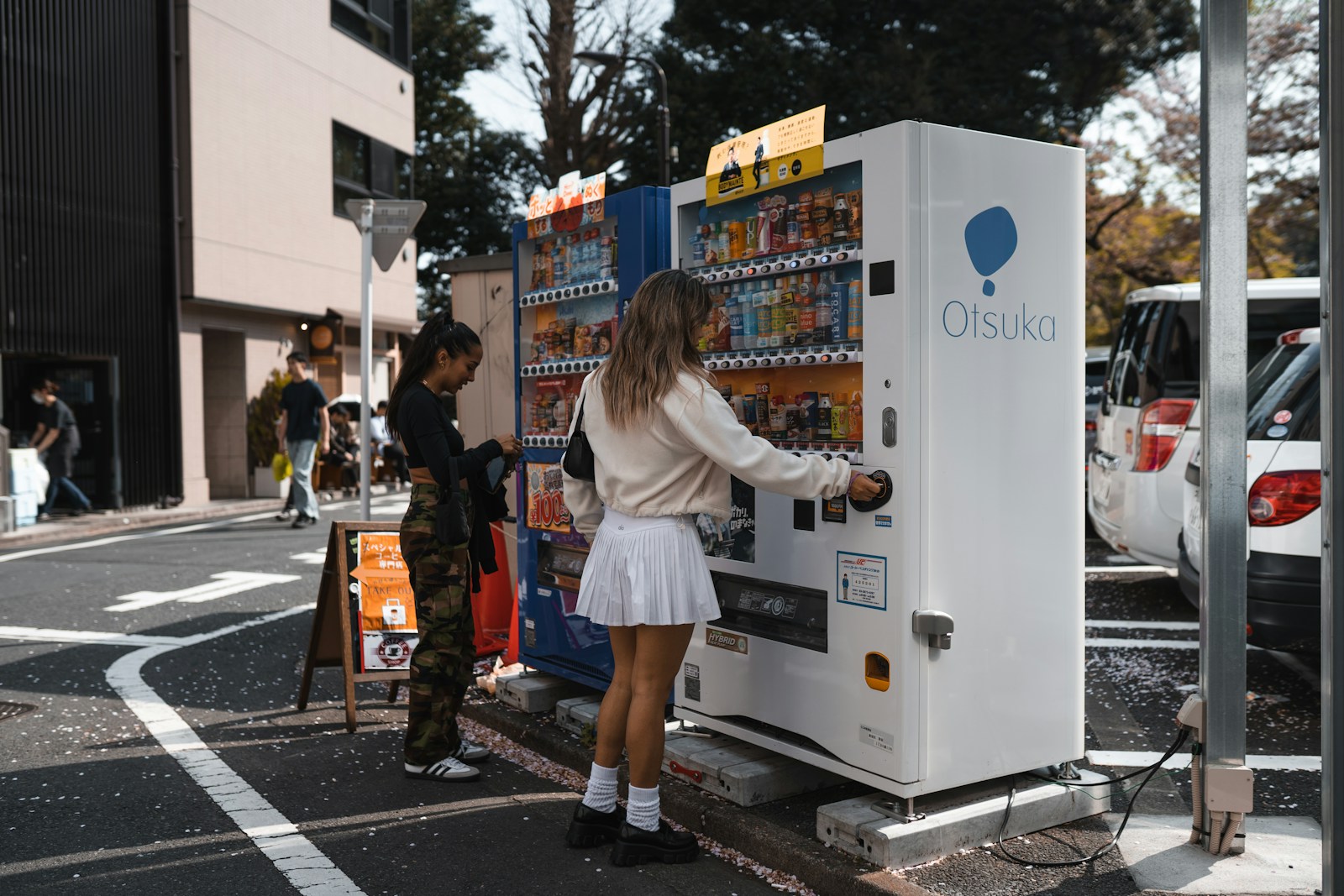In a country renowned for blending tradition with futuristic innovation, Japan’s vending machines stand as a testament to convenience and efficiency. These ubiquitous machines are far more than mere dispensers of drinks and snacks. They are a vibrant part of Japanese culture, a window into the nation’s technological prowess, and a symbol of society’s fast-paced lifestyle. With millions of units dotting the landscape from neon-lit urban corridors to serene rural settings, Japan’s vending machines offer an unparalleled variety of goods and services, reflecting the unique needs and preferences of the populace. This article delves into the phenomenon of Japan’s vending machines, exploring their origins, innovations, and the cultural and economic impact they wield in shaping Japanese life.
Japan’s Vending Machine Culture: An Overview
In Japan, vending machines are not just a convenience; they’re a way of life. With more than 5 million machines nationwide, they offer everything from hot meals to umbrellas, reflecting a society that values efficiency and practicality. This culture of convenience is deeply ingrained, with machines strategically placed in every conceivable location to serve the needs of a population always on the go. The sheer variety and accessibility of these machines have made them indispensable in daily Japanese life, serving the needs of people at any hour of the day or night.
The Origins of Japan’s Vending Machine Revolution
The genesis of Japan’s vending machine revolution can be traced back to the late 19th century, with the first machines dispensing tobacco products. However, it was the economic boom of the post-war era that truly set the stage for their proliferation. As Japan’s economy grew and urbanized, the demand for convenient, round-the-clock access to a variety of goods and services soared. Vending machines, with their ability to operate unattended and in compact spaces, emerged as the ideal solution, rapidly becoming a fixture in Japanese society.
Innovations That Changed the Game: Japan’s Vending Machines
Japan’s vending machines are a showcase of innovation, offering features that go beyond simple convenience. Touchscreen interfaces, facial recognition for payment and product recommendation, and Wi-Fi hotspots are just a few examples of how these machines incorporate cutting-edge technology. Some even adjust their offerings based on the time of day or season, such as machines that sell hot drinks in winter and cold ones in summer. This constant evolution in functionality demonstrates a commitment to meeting consumer needs in imaginative and efficient ways.
Vending Machines Everywhere: From Cities to Rural Areas
Remarkably, Japan’s vending machines are not confined to bustling city streets; they are also a common sight in remote rural areas. This widespread distribution speaks to their role in ensuring that no matter where you are in Japan, necessities (and the occasional luxury) are never too far out of reach. For rural communities, these machines can be a lifeline, offering goods that might otherwise require a lengthy trip to the nearest town.
The Quirkiest Finds in Japan’s Vending Machines
From live crabs to fresh eggs, and even neckties, the range of items available in Japan’s vending machines can be astonishing. These quirky machines not only serve as a source of curiosity and amusement but also highlight the innovative spirit of Japanese vending machine operators. They experiment with diverse products to meet niche markets, creating a vending machine culture that is both varied and vibrant.
How Japan’s Vending Machines Cater to Every Need
The adaptability of Japan’s vending machines is a key factor in their success. They cater to a wide array of needs, from emergency rations and first-aid kits in disaster-prone areas to vending machines in hotels offering full meals 24/7. This versatility has cemented their place in the fabric of Japanese society, proving that they can offer more than just convenience—they offer solutions.
The Role of Technology in Vending Machine Evolution
Technology is the driving force behind the evolution of Japan’s vending machines. Advances in IoT (Internet of Things) technology have transformed these machines into smart, connected devices capable of inventory management, sales tracking, and even predictive maintenance. This high level of technological integration not only enhances the user experience but also increases the operational efficiency of vending machines, ensuring they remain a staple of Japanese culture.
Sustainability and Eco-Friendliness: Vending Machines’ New Era
As awareness of environmental issues grows, Japan’s vending machines are entering a new era of sustainability and eco-friendliness. Efforts to reduce energy consumption, such as the adoption of LED lighting and solar panels, are becoming more common. Additionally, machines offering reusable containers and recycling initiatives are on the rise, reflecting a societal shift towards more sustainable consumption practices.
The Economic Impact of Vending Machines in Japan
Vending machines contribute significantly to Japan’s economy, not just in terms of sales but also by creating jobs in maintenance, restocking, and manufacturing. They offer a low barrier to entry for entrepreneurs and small businesses, providing an accessible platform for selling a wide range of products. This economic impact is felt not just in urban areas but across the country, demonstrating the machines’ role in supporting local economies.
Social Implications: How Vending Machines Shape Japanese Life
The pervasiveness of vending machines in Japan has profound social implications, shaping daily behaviors and societal norms. They reflect and reinforce values of trust and safety, given that machines are rarely vandalized, despite often being placed in secluded areas. This trust in public spaces and the reliability of services provided contribute to a sense of community and mutual respect, underscoring the social cohesion that vending machines help foster.
Future Trends: What’s Next for Japan’s Vending Machines?
Looking ahead, Japan’s vending machines are set to become even more integrated with digital technology, using data analytics for personalized marketing and AI to predict consumer trends. The potential for further innovation is vast, with possibilities ranging from increased use of biometrics for payment to the expansion of vending machine-governed micro-retail spaces. As these trends unfold, Japan’s vending machines will undoubtedly continue to evolve, remaining at the forefront of convenience culture.
Unveiling the Convenience Revolution: Japan’s Vending Machines
Japan’s vending machines embody the intersection of tradition and innovation, serving as both a cultural icon and a beacon of futuristic technology. They offer a glimpse into the Japanese ethos of service, efficiency, and adaptability, providing a model of convenience that the rest of the world can only aspire to. As these machines continue to evolve, they will no doubt remain an essential feature of the Japanese landscape, symbolizing a society that values convenience, innovation, and above all, the needs of its people.
The story of Japan’s vending machines is one of constant evolution, driven by a society that prizes efficiency, innovation, and accessibility. These machines are more than just a convenient way to purchase goods; they are a cultural phenomenon that encapsulates the unique blend of tradition and modernity that defines Japan. As technology advances and societal needs change, Japan’s vending machines will continue to adapt, offering insights into the future of retail and consumer behavior. Through their convenience, versatility, and technological prowess, they not only serve the immediate needs of people but also reflect the changing tides of Japan’s societal values and aspirations.








